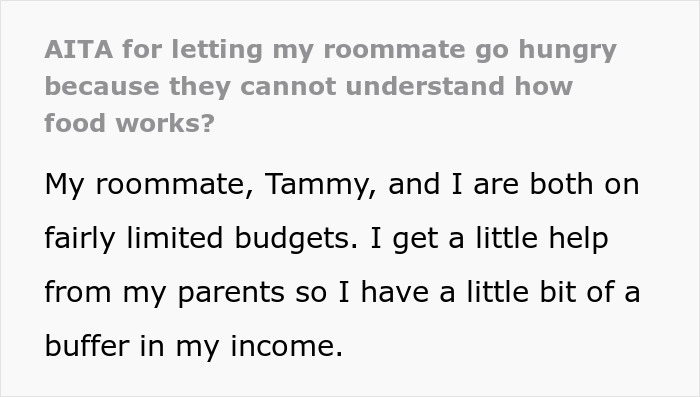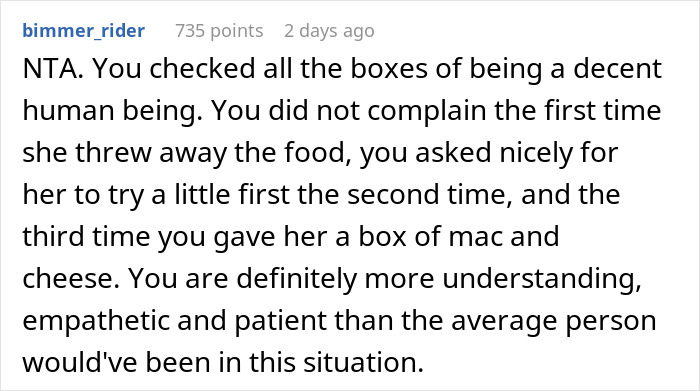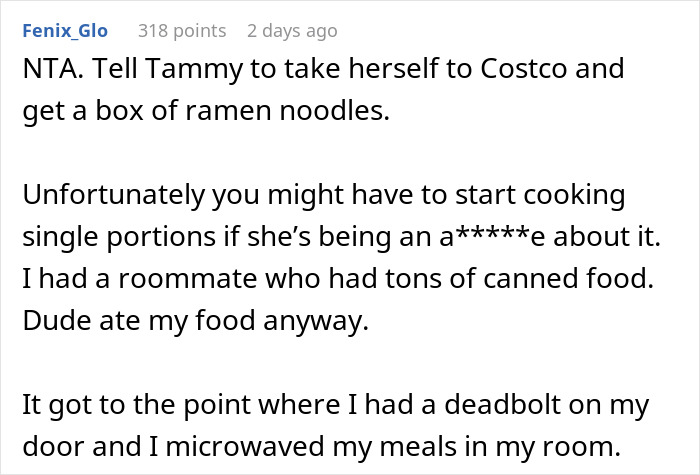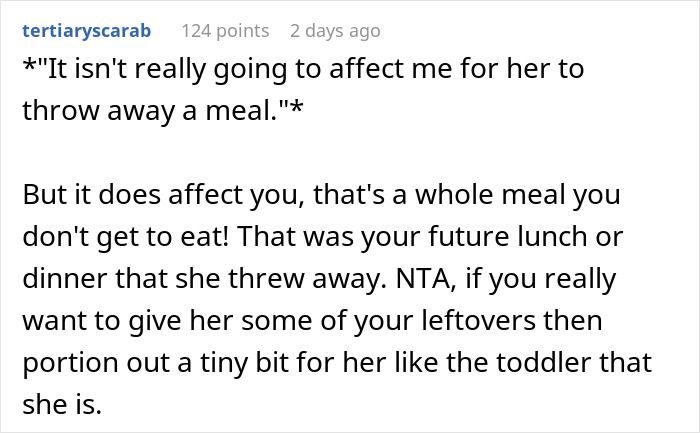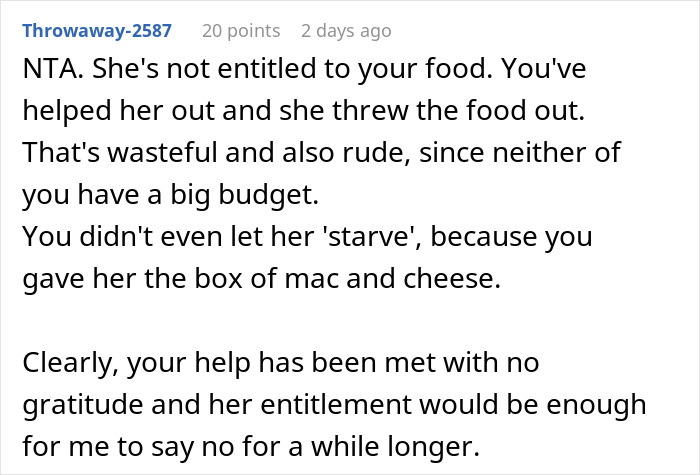When someone brings you a home-cooked meal, it should be enjoyed and appreciated, not thrown away in one swift motion. If the latter happens, food waste might not be the only problem.
Redditor u/ZealousidealFan8906 told the AITA community about falling out with their roommate because of such a situation. The roomie repeatedly asked for leftovers only to dispose of them soon after. The OP eventually refused to give any more food, but started to wonder if they’re a jerk for doing so, as the roommate said they were letting them starve.
Home-cooked meals take time and energy to prepare, which makes throwing them away—wasting more than just food
Image credits: vladans (not the actual photo)
This person repeatedly shared leftovers with their roommate, but refused to do so after seeing what they did with them

Image credits: borodai (not the actual photo)
Image credits: ZealousidealFan8906
People waste billions of tons of food every year in countries all over the world
The OP was understandably upset about Tammy throwing away the leftovers. They spent time, money, and effort cooking the meal, and the roommate sent it all down the drain. (Well, into the trash can, in this case.) By doing that, she disrespected the cook and definitely didn’t make the situation with food waste any better.
As a matter of fact, as much as one third of the food in the world is wasted. An astonishing 1.3 billion tons of it would have been suitable for human consumption. To put matters into perspective, it is the equivalent of nearly 1,500 Golden Gate Bridges (887,000 tons each) combined. The situation in the US is no better than the global one—40% of food in the country ends up not being used.
To make matters worse, 14% of it is wasted after harvesting before even reaching the shelves. Another 17% is disposed of in homes, stores, and restaurants. Solving this global problem could help alleviate the issue of world hunger, which currently affects nearly 10% of our population.
Image credits: stayhereforu (not the actual photo)
Such waste negatively affects the humankind as well as the planet, therefore, certain management strategies are created
More saddening statistics reveal that food waste has a strong negative impact not only on the human race, but on the planet as well. The quantity of CO2 it emits would be enough to make it the third largest emitter of greenhouse gasses, right after the US and China, if it was a country. In addition to that, it leads to wasting large amounts of water each year as well.
In order to tackle this problem, organizations are taking action to scale down the amounts they misuse or discard. Some of the ways to do that include reducing the surplus of generated food, donating it, and diverting scraps to animal feed or composting it.
Each person can contribute to minimizing such waste on their end. Steps as simple as planning your meals, storing the produce wisely, and paying attention to the food labeling can be enough to make a difference in the household. Trying to reduce it can also help to save money, which was one of the reasons the OP was so sensible about their food.
Image credits: Andrea Piacquadio (not the actual photo)


